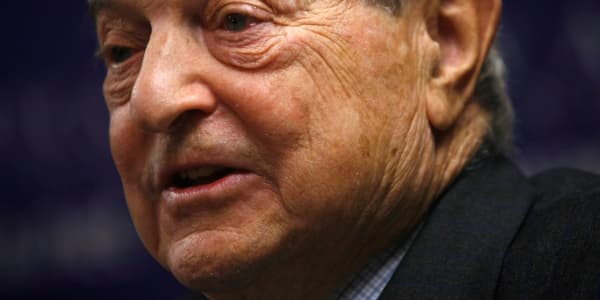
Hungary's economic strategy minister stressed that the country is back on the path to growth and stability, in a move to reassure investors over the government's recent political and economic reforms that have raised concerns from markets and the European Union.
Zoltan Csefalvay told CNBC on Tuesday that there had been many changes in Hungary over the last few years including to the tax system, labor market regulation and institutional structure and said that this could have appeared "unpredictable" for investors, but more stability was on the horizon.
"I can understand that if you look at this huge range of reforms it looks unpredictable [for investors]," he said.
"But if you look at the 2014 budget it is a predictable and boring budget. I think step by step Hungarian economic policy will be much more predictable and this is good message for the business community."
The country has not had an easy relationship with either its creditors or European Union official over the past few years. Since coming to power in 2010, Prime Minister Viktor Orban has proposed reforms designed to reduce foreign influence over the country but have appeared increasingly autocratic.
Apart from moves to restrict media freedom and the judiciary, what particularly unnerved officials in Brussels earlier this year was the installation of former Economy Minister Gyorgly Matolcsy, a close associate of Orban's, as governor of the Hungarian central bank in March.
The appointment prompted concerns that Orban might pressure the central bank to attempt to write-off the country's large foreign currency debts, or convert them into Hungarian forints, in an attempt to get the economy back on track.
(Read More: Hungary attacks Roubini over currency 'advice')
The European Commission threatened to launch legal proceedings against Hungary if it adopted constitutional changes that it said could contravene European law.
(Read more: Could Hungary be thrown out of the EU?)
Government policies that have also worried foreign investors this year include threatened loan losses on banks, increased business taxes and talks of nationalising several utility companies in a bid to revive the economy.
Csefalvay insisted that the conflict with Europe had stemmed from conflicting visions of what the EU should be.
"Hungary believes the EU should be a community of nation states…and Hungarian policy is rather more in favour of this second vision," he said.
"The question is, do we need such a strong and bureaucratic Brussels for it? All the conflicts that you have seen over the past few years between Hungary and the European Commission are because of these two [competing] visions."
Zsolt Katona, chief executive of the Budapest Stock Exchange, also told CNBC that the period of unpredictability was over and that foreign investors had faith in Hungary.
"The government has made all the necessary steps to strengthen the budget deficit balance and now we're looking really good. Some critics say Hungary is not on track but looking at the key indicators this is not the case. Growth is high, inflation is under control and budget deficit is under 3 percent."
Despite concerns over Orban's policies, the country's economic record is improving.
"I think Hungary has turned a corner and now we are on the growth path," Csefalvay told CNBC on Wednesday. "Most importantly, the growth is based on healthy foundations."
Last week, gross domestic product (GDP) figures for the third quarter showed that Hungary's economy grew by 0.8 percent quarter on quarter and had expanded 1.7 percent, year on year.
The picture of growth follows a double-dip recession during the financial crisis, however. In the build-up to the crash, Hungarian families and corporates had taken out cheap loans denominated in euros and Swissfrancs but the borrowing binge ended badly when the forint tumbled in 2008.
This forced the country to request a 20 billion-euro ($27.9 billion) bailout from the International Monetary Fund and EU, which the country joined in 2004.
In addition to the country's latest growth data – which contrasted with a 0.2 percent growth rate for the entire EU in the third quarter --as of September, the unemployment rate stands at 10.1 percent, according to European statistics agency Eurostat, below the average rate of 11 percent in the EU. Furthermore, the country paid back the last of its IMF loan early, in August.
(Read More: Eastern Europe 'held hostage' by German slowdown)
Csefalvay added that the country needed to keep the budget under 3 percent (the limit set by the EU and one which the country's economy ministry has said it will achieve in 2013) which would in turn lead to higher growth.
Another point of harmony with the EU came in September when Orban's government appeared to back down on its proposed constitutional changes that had caused a rift with the European Commission.
Hungary launched its first international bond issue in two years in February in a further attempt to prove it could fund itself on the international market. Katona said that demand for its debt proved it was credible for foreign investors. "If we look at the look at Tuesday's U.S. dollar-denominated bond issue, it was five times over-subscribed which means there is appetite for Hungarian exposure."
- By CNBC's Holly Ellyatt, follow her on Twitter @HollyEllyatt





